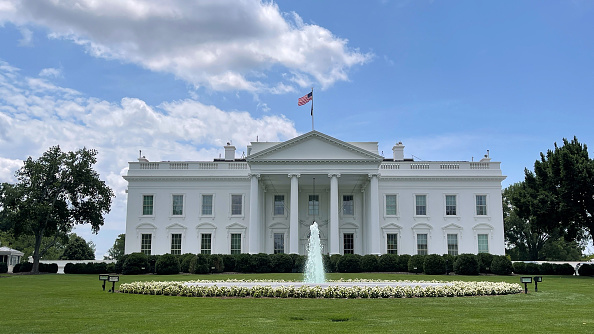An unlikely pair of lawmakers are cooperating on a presidential ethics reform bill, a promising sign of bipartisan recognition that current ethics laws covering top executive branch officials and their families remain woefully inadequate.
However, despite the positive signs presented by this bill, the proposals themselves do not go far enough.
The Presidential Ethics Reform Bill, introduced by Representative Katie Porter, Democrat of California, and Representative James Comer, Republican of Kentucky, seeks to adequately address the inherent appearance of conflicts of interest that arise from allowing family members of the President and Vice President to help shape U.S. foreign policy while receiving benefits from foreign entities. The bill would require additional reporting and disclosure regarding foreign funding, gifts, loans, travel, and conflicts of interest, as well as disclosures on the President's and Vice President's tax returns.
This increased transparency would be a positive step, but ultimately it does not go far enough. Rather than increasing transparency about questionable activities involving Executive Branch family members and foreign entities, Congress should ban such activities altogether.
“The American people deserve complete honesty and transparency from the president and vice president,” Porter said in a press release with Comer on May 22. “By increasing transparency and requiring additional financial disclosures, Congress can uncover executive branch misconduct — or be convinced that no misconduct occurred. These reforms will help restore the American people's trust in their government and strengthen our democracy.”
“The Presidential Ethics Reform Act is groundbreaking bipartisan legislation that will deliver the transparency and accountability the public deserves and ensure that public office is not for sale,” Comer said in a statement. “Influence is a small industry in Washington, and we have identified gaps in our current laws that create a culture of corruption.”
Porter and Comer note that greater transparency would provide greater assurance that agency leaders and their families are not using their public offices to unfairly benefit (and, by the way, the same applies to members of Congress). But even if additional reporting and disclosure would help identify potential wrongdoing, the fact remains that current ethics laws permit activities (disclosed or undisclosed) that clearly have conflicts of interest and undermine public trust in U.S. institutions.
“By enacting this bipartisan legislation that will increase transparency into financial transactions related to the duties of the President and Vice President, we can ensure that going forward, American Presidents, Vice Presidents, and their families cannot profit from their proximity to power,” Comer continued.
Notably, Comer is a leading figure in the House Republican impeachment effort against President Joe Biden, a haphazard and so far fruitless investigation by House Republicans, and at the same time, a key part of the underlying situation being investigated – that the son of a former vice president served on the board of a foreign energy company while his father led the U.S. government's efforts there – should never have been allowed to happen in the first place.
The House impeachment proceedings have not found compelling evidence that Hunter Biden or Joe Biden broke any laws in the Burisma affair (Hunter Biden's taxes and guns are separate issues). But we continue to believe that Biden's involvement in a Ukrainian natural gas company, while appearing to be legal, should not have been, just as Donald Trump's son-in-law Jared Kushner should not have profited from billions of dollars in Saudi investments after playing a key role in ties to Saudi Arabia under the Trump Administration.
Stronger federal ethics laws (rather than executive orders that can be quickly rescinded by any administration) are desperately needed to give Americans confidence that public service is not a back door for private profit. Lawmakers can do that not only by improving the tools to identify such conduct, but also by clearly and broadly prohibiting it. We applaud Porter and Comer for moving this discussion forward, but Congress must go further to address the long-standing, bipartisan problem of inadequate ethics laws.
— Bangor Daily News, Bangor, Maine

